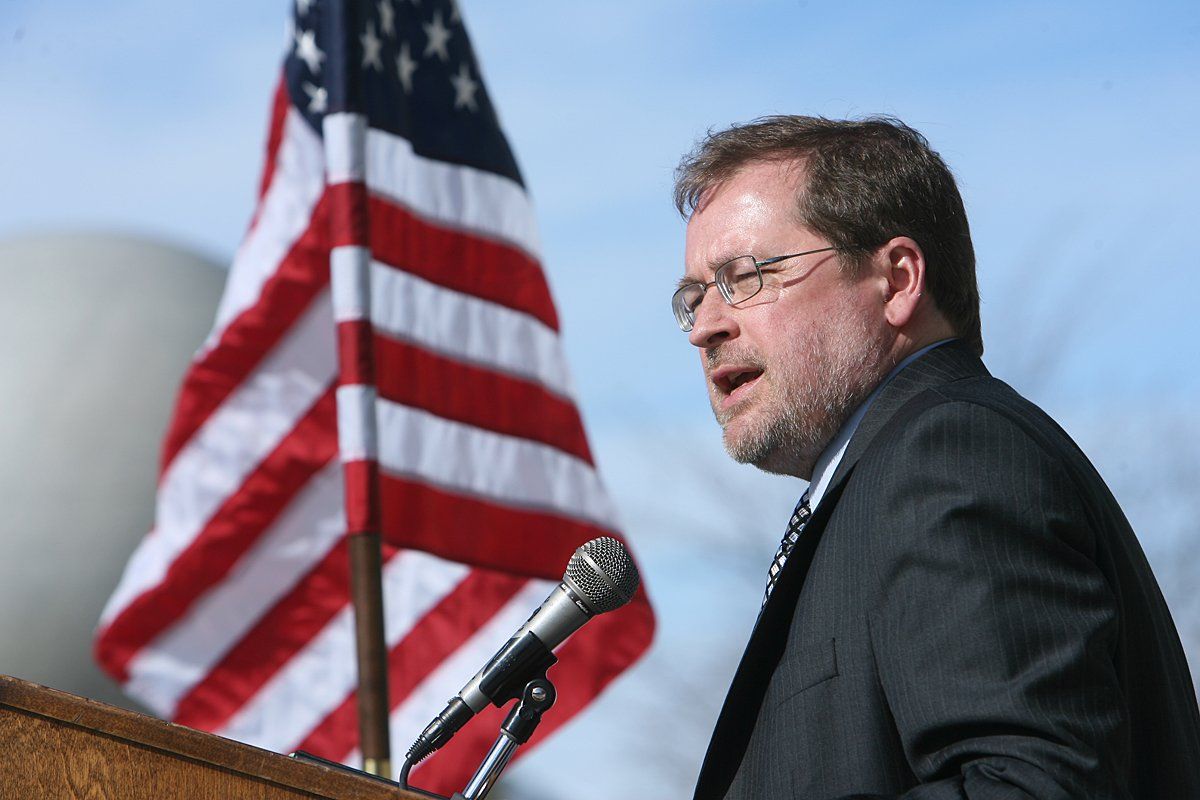
Just in case you hadn't noticed, no one has elected Grover Norquist to anything. Still, he looms as a major obstacle to Congress reaching a deficit-reduction agreement needed to raise the federal debt ceiling. Norquist heads Americans for Tax Reform, a conservative group that has persuaded 41 senators and 236 representatives (all but three of them Republicans) to sign its "Taxpayer Protection Pledge" opposing any tax increase. If Congress eliminates special-interest tax breaks, the pledge requires that they be "matched dollar for dollar by further reducing tax rates."
To Norquist, a tax increase is not good even if it greases a deal to avoid a federal default. Norquist plugs relentlessly for smaller government. "We can reduce the size and scope of government at all levels to make all Americans freer, richer and more independent," he wrote in his 2008 book "Leave Us Alone." But what's revealing about Norquist's passionate advocacy is that it virtually ignores the main causes of bigger government: Social Security and Medicare.
Championing smaller government without coming to grips with these gigantic programs is like playing basketball without a ball. It's make-believe. Norquist's testimony last year before the Bowles-Simpson commission — the bipartisan budget-deficit panel — said almost nothing about these programs. The 360 pages of "Leave Us Alone" only briefly mention them. His recent op-ed in USA Today didn't do even that.
How misleading is this? Well, all programs for the elderly (including much of Medicaid — health insurance for the poor — and other retirement programs) constitute almost half of non-interest federal spending: roughly $1.6 trillion in 2010 out of $3.3 trillion. Moreover, aging baby boomers and surging health costs account for most future spending growth. Without them, we'd have the smaller government that Norquist craves.
But let's be fair. Deception is bipartisan. Liberal groups often misleadingly play down how much burgeoning spending on the elderly threatens higher taxes or deep cuts in other programs. You can't understand how we got in the budgetary soup without seeing the parallel evasions of left and right.
A good example is the Center for Budget and Policy Priorities. It has 25 federal budget experts and is a widely respected source of analysis, although it's also openly liberal in advocating social spending for the poor and the elderly. But the center has never — despite its name — presented a fully balanced budget to show how it would choose among competing interests.
Asked about this, Bob Greenstein, the center's longtime head, said in an e-mail that he's been "reluctant to develop comprehensive budget plans," arguing that "we do not have expertise in all parts of the budget" — defense, for instance. This is weak; no one has expertise in all parts of the budget. The real reason is political expediency. Social Security and Medicare are too popular to assail. By shunning budget balancing, Greenstein spares himself having to make major Social Security and Medicare cuts or supporting the stiff tax increases needed to pay for them.
Norquist and Greenstein both practice avoidance. Dealing with Social Security and Medicare's vast costs would force Norquist to admit that smaller government would require savage (and implausible) benefit cuts. Greenstein would have to concede that spending for the elderly competes directly with social spending for the poor and that supporting both would require sizable tax increases well beyond the upper crust. For example: repealing the Bush tax cuts for higher-income Americans (couples exceeding $250,000; singles, $200,000) would raise about $700 billion from 2011 to 2020; projected deficits for those years total almost $10 trillion.
For a moment last week, there seemed the tantalizing possibility of a grand bargain: Democrats accept some cuts in Social Security and Medicare; Republicans agree to some higher tax revenue. (Note: Given the weak economy, changes could be introduced gradually.) But the prospects now have dimmed, in part because neither side can rise above the narrow perspectives of its ideological minders.
Groups such as Norquist's and Greenstein's serve as political and intellectual gatekeepers. They help determine which ideas and what rhetoric are acceptable to their partisans. The visions presented to their constituents are satisfying — but also selective, simplistic and, ultimately, false. This is one reason that budget debates have been so futile, and why the nation is now flirting with a potentially disastrous failure to raise the debt ceiling.
Governing is about choosing, and in the budget debate, there are no popular choices. But the reality shaping them all is an aging society in which programs for the elderly are pushing the budget into growing disequilibrium. Until the political gatekeepers acknowledge this — meaning the left recognizes the need for genuine benefit cuts and the right accepts some higher taxes — public understanding and political agreement will remain hostage to partisan fairy tales. It's time to deal with facts.
This column originally appeared in The Washington Post.
Uncommon Knowledge
Newsweek is committed to challenging conventional wisdom and finding connections in the search for common ground.
Newsweek is committed to challenging conventional wisdom and finding connections in the search for common ground.





